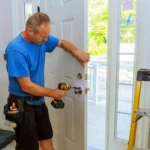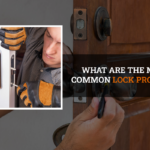Emergency Locksmiths. That’s sometimes what we are called when people are locked out and in need of someone to come to their rescue. And it’s always nice to be a hero and save someone’s day. it really is. But truly, we are just doing our regular job, with minimal stress (at least for us) and being paid for it too. No, the true heroes are the men and women of the real emergency services, police, fire, ambulance, search and rescue, the maritime rescue service and the NHS, those who have chosen to dedicate a career to their service and the many, many volunteers who selflessly pledge to help in the cause as well. That’s why late in this month of August we wanted to highlight a special day in early September. A day everyone ought to be aware of if you’re not already. Emergency Services Day, or 999 Day. A day that with forward planning no doubt rather than lucky coincidence has been held annually since 2017 to celebrate the people of the emergency services on the 9th Day of the 9th Month and kicks off at 9am. 999 see. Brilliant. Fully endorsed by the Queen and the UK Government, it’s a day that both promotes everything that the emergency services do and lets the rest of us pay tribute to the almost 2 million people who work and volunteer across the different services. And it’s a day that showcases opportunities for anybody thinking they might want to do ‘their’ bit in some way too, the career and volunteer services available, and just even how to use the emergency services responsibly. (Yeah, don’t call the fire brigade if you are drunk and locked out. They tend to enter homes with an axe.) To learn more about the UK Emergency Services Day and what it entails, you can visit the official 999Day website here. And, since we are a proud Yorkshire company, may we publicise the 3rd annual Emergency Services Day for our North of England emergency services. Held at the Yorkshire Air Museum, Elvington, only 6 miles outside of York we know it’s been a great success on previous occasions and if you are local you can read why and how to attend this year’s event, (actually on 25th Sept, not 9th Sept.) on the Museum’s website. So there we have it, something a bit different this time but something we thought worthwhile to bring to your attention. Because indeed, as emergency locksmiths, please call our number, or any reputable locksmith, and we can definitely be the hero of the hour for you. Normally within the hour in fact. But actual heroes are ones that show up if you call 999.









